Home » An In-Depth Look At Ovarian Cyst Surgery
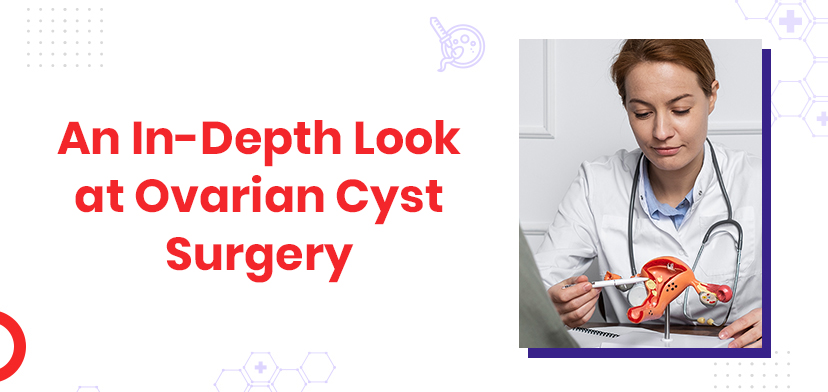
When approaching surgery, it’s natural to feel terrified or overwhelmed, especially regarding ovarian cysts. Fortunately, ovarian cyst removal surgery can bring genuine comfort and hope with the proper diagnosis and treatment.
But what exactly is the procedure for ovarian cyst laparoscopic surgery? We’ll review the full procedure here, from diagnosis to cost to recovery. We’ll go through what to expect, how to prepare for surgery, the cost in India, and the recovery process.
Our objective is to make this procedure as easy and good as possible. You are not alone at this difficult time, and treatments are available to assist you. Get a diagnosis, seek expert help from the best gynaecologist for ovarian cyst, and take the required actions to find relief.
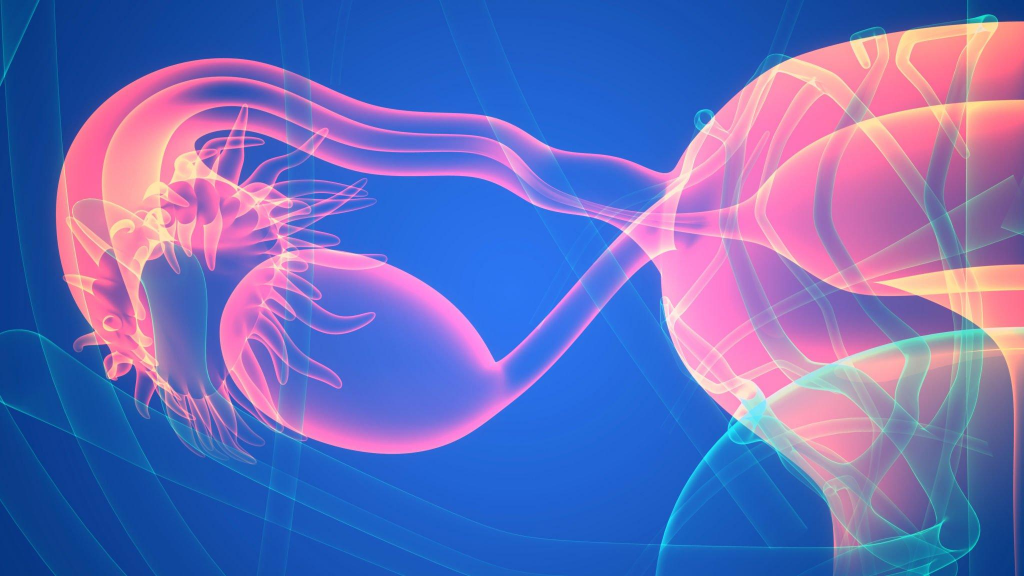
An ovarian cyst is a sac filled with fluid that can form within or on the surface of a female’s ovary. They normally develop during ovulation, when the egg is expelled from the follicle, and the follicle collapses. However, certain cysts can occur if the follicle does not collapse and starts to expand or if the egg is not discharged. Ovarian cysts can be tiny or large in size, producing various symptoms such as discomfort, bloating, and menstruation abnormalities.
Ovarian cysts can be caused by various reasons, including genetics, endometriosis, polycystic ovary syndrome (PCOS), uterine fibroids, or other underlying medical disorders.
Furthermore, some women may be predisposed to developing ovarian cysts due to lifestyle factors such as obesity or a lack of exercise.
Hormone imbalances, pelvic infections, birth control medications, and tumours can all cause cysts. Some cysts may grow from a tissue left behind from earlier surgery.
It is crucial to note that many ovarian cysts are harmless and may resolve on their own. However, surgery may be considered if the cyst is larger or causes pain or other symptoms.
Though ovarian cysts tend to resolve on their own, unresolved or untreated cysts may be painful and discomforting. The most frequent symptoms of ovarian cysts include
Other symptoms may include
In certain situations, the cyst may rupture, causing severe pain. A cyst can become big and cause abdominal swelling in rare situations.
If you have any of these symptoms, you should seek medical assistance immediately so your doctor can make an accurate diagnosis and provide adequate treatment.
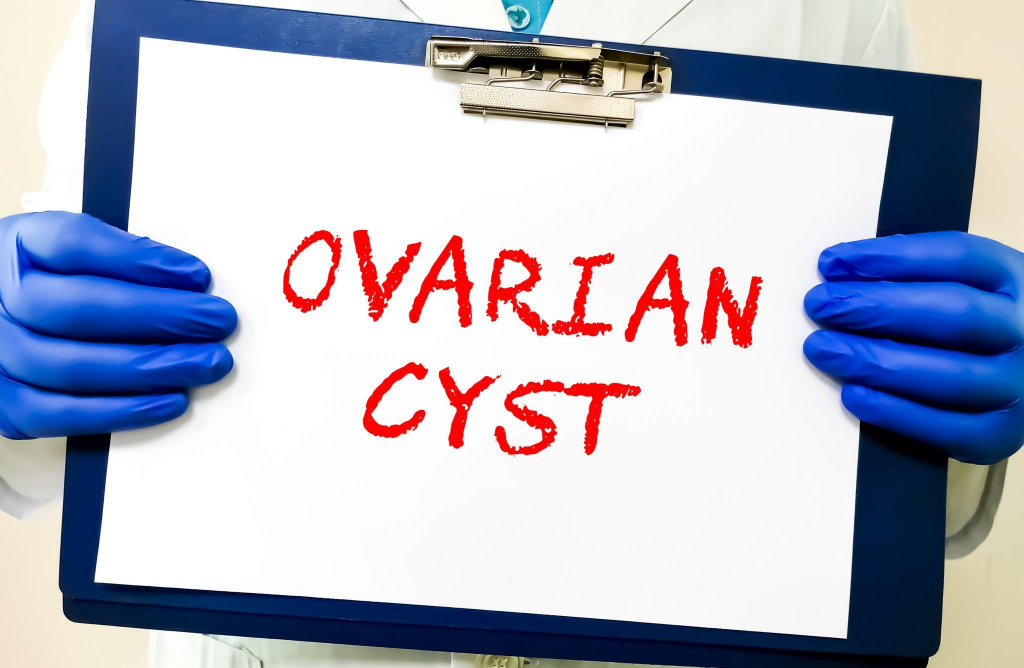
A physical exam, pregnancy test, blood testing (tumour marker tests), ultrasound, or laparoscopy can all be used to identify ovarian cysts.
Pregnancy test
You may have a corpus luteum cyst if the test results are positive.
Pelvic ultrasound
This technique is necessary for the doctor to determine the sort of cyst you have and to recommend a treatment plan. Ultrasound may also be used to monitor the cyst’s size and search for changes in the cyst. It is non-invasive, painless, and requires no recovery time. It is an effective method for monitoring ovarian cysts and evaluating whether surgery is required.
Laparoscopy
The doctor will make a tiny incision in your belly and insert a laparoscope to inspect the cyst. The doctor may opt to remove or leave the cyst depending on its size and nature. If the cyst is removed, it will be sent to a lab for additional testing, and the cyst and surrounding tissue will be checked for symptoms of cancer or other health problems. The doctor may need to remove surrounding lymph nodes or tissue to confirm that no malignant cells are present.
Blood tests
Tumour marker tests assess the presence of proteins known as cancer antigens in a patient’s blood. A cancer antigen 125 (CA 125) test or other related blood tests may be conducted if the cyst seems to be solid and the patient is at high risk of ovarian cancer. CA 125 levels can be increased in different forms of cancer and non-cancerous conditions. Hence, they are not diagnostic on their own. A CT scan or an MRI may be required to confirm the diagnosis.
Treatment for ovarian cysts is determined by the type of cyst, size, and associated symptoms.
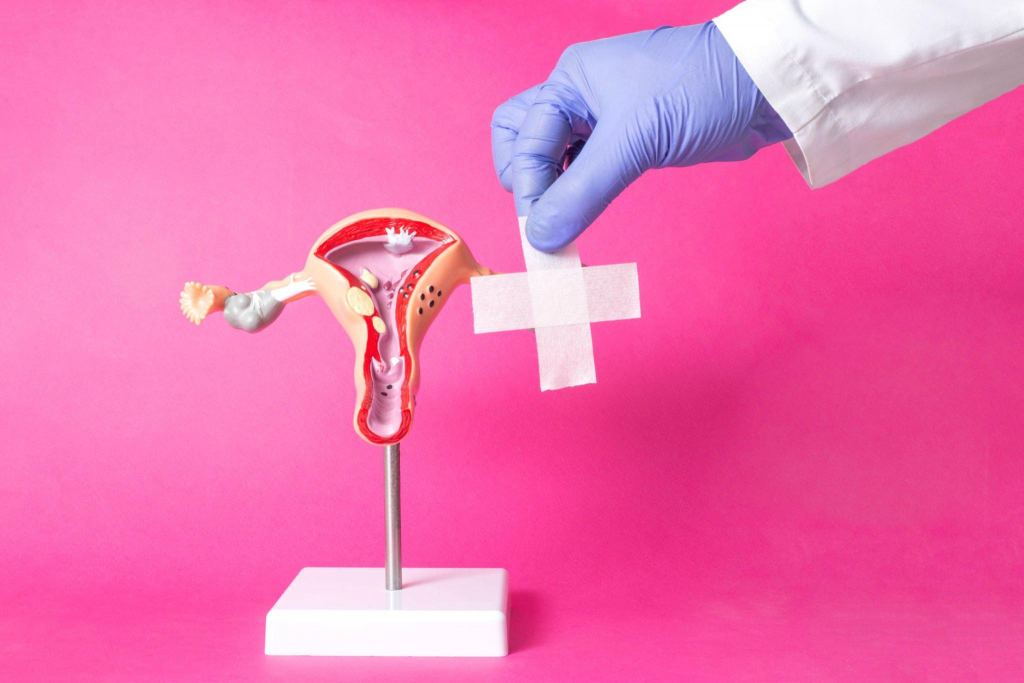
Here are some signs that you need to get ovarian cysts removed:
You should prepare for ovarian cyst surgery before having the procedure. This involves discussing the procedure’s dangers and advantages with your doctor and completing a comprehensive physical. It is also critical to plan for any possible post-operative difficulties.
You should also verify that they are physically fit for surgery and follow their doctor’s pre-operative tests and care recommendations. It is also critical to plan for post-operative care, such as getting essential drugs, scheduling transportation, and creating a pleasant recovery space.
Finally, it is critical to discuss the expenses of ovarian cyst surgery with your doctor and make plans to pay for the treatment ahead of time.
Surgery is usually recommended for ovarian cysts that are greater in size or have a unique appearance. Surgery may also be indicated if cysts cause discomfort or other symptoms or if the patient is at risk of developing ovarian cancer. Laparoscopic cystectomy and laparotomy are the two main kinds of ovarian cyst surgery.
Laparoscopy Cystectomy
Laparoscopy is a minimally invasive treatment that is less intrusive on the body than standard open surgery. The surgeon will make a few tiny incisions in the belly and introduce a laparoscope to examine the inside during the surgery. This procedure is commonly used to remove cysts, tissue, or lymph nodes. Recovery time is often less than that of open surgery, and scarring is negligible.
Laparotomy Cystectomy
Laparotomy is a more intrusive form of surgery that involves a single incision in the lower belly made by the surgeon. This procedure is typically utilised when the cyst is big or when the doctor wants to remove adjacent lymph nodes or tissue to guarantee that no malignant cells are present. Recovery time is longer than with laparoscopy, and scarring is possible. Following surgery, you must consult with your doctor to ensure that the cyst does not recur.
The healing process and time required will differ based on the kind and amount of surgery. You are usually advised to rest for several days following the treatment and to avoid vigorous activity and exercise until the doctor says it is safe to begin. If necessary, pain medicines may be prescribed. Following all of the doctor’s directions is critical to recovering successfully.
Following surgery, you should adjust their diet and exercise programme. A healthy diet rich in fruits and vegetables is necessary for a quick recovery.
The doctor may advise you to go for regular walks or perform other low-impact activities, gradually increasing the intensity as you regain strength and energy. While some discomfort may remain for some time, it is critical to follow all of the doctor’s directions to achieve the greatest possible result.
Like any other surgical operation, Ovarian cyst surgery has risks and possible problems. These include the possibility of infection, internal bleeding, and organ damage.
It is critical to be informed of the dangers before the surgery and to discuss them with the doctor. Because the cyst may reappear in some situations, regular follow-up visits are required to monitor for recurrence.

The ovarian cyst surgery cost varies according to the treatment and the facility where it is performed. Because it is a more sophisticated and less invasive operation, a laparoscopic cystectomy is often more costly than a laparotomy. A cystectomy in India normally costs between Rs. 40,000 and Rs. 70,000.
Ovarian Cyst Surgery Cost India
| City | Price Range (Min-Max) |
| Bangalore | Rs. 50000 – 97500 |
| Chandigarh | Rs. 65000 – 91000 |
| Chennai | Rs. 27160 – 301270 |
| Gurgaon | Rs. 52605 – 231745 |
| Hyderabad | Rs. 45954 – 170070 |
| Indore | Rs. 65000 – 91000 |
| Kolkata | Rs. 65000 – 97500 |
| Lucknow | Rs. 65000 – 90300 |
| Mumbai | Rs. 27160 – 221670 |
| Noida | Rs. 52605 – 231745 |
| Patna | Rs. 65000 – 91000 |
| Pune | Rs. 27160 – 301270 |
In addition to the cost of surgery, additional fees may be considered, such as medications, diagnostics, and follow-up appointments.
Patients should also be advised that certain doctors may request additional pre- and post-operative testing or procedures. Before deciding, it is critical to understand all the potential costs of ovarian cyst surgery.
For people who need to pay for ovarian cyst surgery, GMoney offers a loan for ovarian cyst removal surgery. GMoney can offer a loan with flexible payback terms, no-cost medical EMI, and no collateral, making it an appealing choice for people who need to fund the treatment.
Patients may be certain that GMoney will pay their medical bills and that they will be able to obtain the finest care for their conditions.
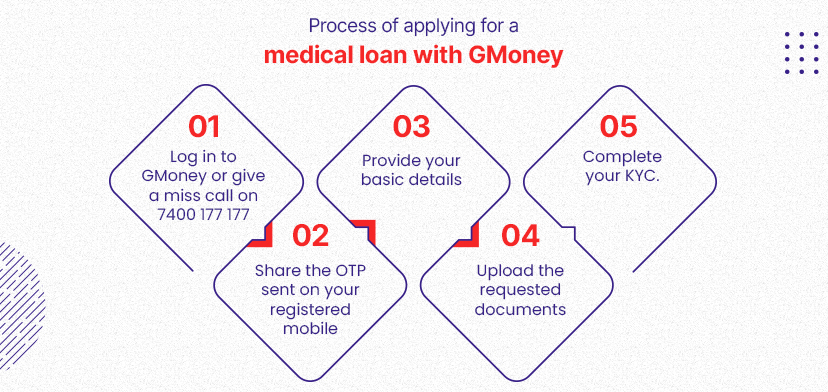
1. What is ovarian cyst surgery?
Ovarian cyst surgery is a technique that removes an ovarian cyst. The cyst may be benign or cancerous, and surgery may include the removal of the whole ovary or only the cyst. The surgery’s objective is to remove the cyst while preserving as much of the ovary as feasible.
2. What is the procedure for ovarian cyst surgery?
Laparoscopic ovarian cyst surgery normally includes creating tiny incisions in the belly and introducing a camera and tools through them. The cyst will then be located and removed by the surgeon. Larger cysts or cysts placed deep in the belly may necessitate open abdominal surgery in some cases.
3. What are the risks associated with ovarian cyst surgery?
Ovarian cyst surgery, like any other surgical operation, carries hazards. These include infection, bleeding, organ damage, and blood clots. Furthermore, if the cysts are not entirely eliminated, they can recur.
4. What may I expect following ovarian cyst surgery?
You may suffer pain and discomfort in your belly following ovarian cyst surgery. You may also feel nauseated and fatigued. Following your doctor’s recuperation recommendations is critical, which may include taking pain relievers and avoiding heavy activity.
5. What is the cost of ovarian cyst surgery in India?
The cost of ovarian cyst surgery varies according to your procedures, complexities, chosen hospital and other variables. In general, it can range from 40,000 to 70,000 dollars, depending on the intricacy of the treatment and other criteria.
6. How long does recovery from ovarian cyst surgery take?
The recovery period following ovarian cyst surgery might vary based on the operation and other circumstances. In general, most patients should anticipate resuming regular activities within a few weeks of their treatment.
7. How long is the no-cost EMI for ovarian cyst surgery at Gmoney?
GMoney provides a flexible repayment tenure, allowing customers to select a loan period ranging from three to eighteen months, dependent upon their paying capability.
8. What are the documents required to apply for no-cost EMI?
You need to upload the following documents online:
Ovarian cyst surgery is a very frequent operation with minimal risk of complications. It is critical to understand the risks and potential expenses involved with the surgery and the available financing alternatives. GMoney is an excellent choice for individuals who need to pay for ovarian cyst surgery since it provides quick and easy loan approval with flexible payback periods. Ovarian cyst surgery may be a successful and safe operation if done correctly.
Disclaimer: THIS WEBSITE DOES NOT PROVIDE MEDICAL ADVICE.
Follow us
Reach us
Mumbai HO
GMoney Pvt. Ltd.
315, 215 Atrium,
Next to Courtyard by Marriott,,
A.K. Road, Andheri East,
Mumbai - 400093
Ph : +91 86570 00105, +91 72089 60444
Quick Links
Bengaluru
GMoney Technologies Pvt. Ltd.
Oyo Work Spaces, Umiya Emporium,
Opposite Forum Mall, Hosur Rd,
Koramangala, Bengaluru,
Karnataka 560029
Ph : +91 72089 60444
Delhi
GMoney Technologies Pvt. Ltd.
Berry Co Works, 1E/3,
Jhandewalan extension,
Next to jhandewalan metro station
gate no. 2 Barakhambha Road,
New Delhi, Delhi 110001
Ph : +91 72089 60444
Pune
GMoney Technologies Pvt. Ltd.
91 Spring Board, Sky Loft,
Creaticity Mall, Off, Airport Rd,
opposite Golf Course, Shastrinagar,
Yerawada, Pune,
Maharashtra 411006
Ph : +91 72089 60444
Chandigarh
GMoney Technologies Pvt. Ltd.
SCO no. 292,
First Floor, Sector 35D,
Chandigarh
Ph : +91 72089 60444
Jaipur
GMoney Pvt. Ltd.
CODESKK Civil Tower,121 122,
Pandit TN Mishra Marg,
Santhosh Nagar, Nirman Nagar,
Jaipur – 302019
Hyderabad
GMoney Pvt. Ltd.
Dwaraka Pride,
Plot no. 4/1, Survey No. 64,
Huda Techno Enclave, Madhapur,
Hyderabad (Telangana) – 500081
Chennai
GMoney Pvt. Ltd.
DBS Business Center, 31A,
Cathedral Garden Rd, Badrikari, Tirumurthy Nagar, Nungambakkam, Chennai, Tamil
Nadu – 600 034
Mumbai HO
GMoney Pvt. Ltd.
315, 215 Atrium,
Next to Courtyard by Marriott,,
A.K. Road, Andheri East,
Mumbai - 400093
Ph : +91 86570 00105, +91 72089 60444
Bengaluru
GMoney Pvt. Ltd.
3rd floor, Ranka Junction,
AH45, Krishna Reddy Industrial Estate,
Dooravani Nagar,
Bengaluru Karnataka - 560016
Ph : +91 72089 60444
Pune
GMoney Pvt. Ltd.
91 Spring Board, Sky Loft,
Creaticity Mall, Airport Rd,
Opp. Golf Course, Shastrinagar,
Yerawada, Pune,
Maharashtra - 411006
Ph : +91 72089 60444
Delhi
GMoney Pvt. Ltd.
Berry Co Works, 1E/3,
Jhandewalan extension,
Gate no. 2 Barakhambha Road,
New Delhi, Delhi - 110001
Ph :
+91 72089 60444
Chandigarh
GMoney Pvt. Ltd.
SCO No. 292,
First Floor, Sector 35D,
Chandigarh - 160022
Ph : +91 72089 60444
Hyderabad
GMoney Pvt. Ltd.
Dwaraka Pride,
Plot no. 4/1, Survey No. 64,
Huda Techno Enclave, Madhapur,
Hyderabad (Telangana) - 500081
Jaipur
GMoney Pvt. Ltd.
CODESKK Civil Tower,121 122,
Pandit TN Mishra Marg,
Santhosh Nagar, Nirman Nagar,
Jaipur - 302019
Chennai
GMoney Pvt. Ltd.
DBS Business Center, 31A,
Cathedral Garden Rd, Badrikari,
Tirumurthy Nagar,Nungambakkam, Chennai,
Tamil
Nadu - 600 034
Pune | Mumbai | New Delhi | Kolkata | Chennai | Navi Mumbai| Bengaluru | Ahmedabad | Nagpur | Hyderabad | Jaipur | Lucknow | Bhopal | Bhubaneswar | Nashik | Indore | Ghaziabad | Kanpur | Amritsar | Vasai | Noida | Gurugram | Chandigarh | Ranchi | Cuttack | Thane | Kalyan | Jalandhar | Kolhapur | Visakhapatnam | Chakan| Greater Noida | Wagholi | Raipur | Panvel | Belgaum | Mohali | Bhiwandi | Talegaon | Coimbatore | Palghar | Mumbra | Sangli | Surat | Durgapur | Ludhiana | Kochi | Agra | Ahmednagar | Ajmer | Akola | Aurangabad | Baroda | Beed | Rewari | Patiala | Vellore | Ranjangaon | Nanded | Nellore | Panipat | Panjim | Madurai | Mysore | Mangalore | Korba | Mathura | Kalaburagi | Jalgaon | Kharar | Guwahati | Kollam | Jamshedpur | Gwalior | Saswad | Solapur | Varanasi | Salem | Sambalpur | Jodhpur | Hubli | Panchkula | Faridabad | Amravati | Ayodhya | Badlapur | Dehradun | Parbhani | Ujjain | Udaipur | Tiruchirappalli | Srinagar | Shimla | Secunderabad | Ratnagiri | Pandharpur | Ananthapuram | Buldhana | Hadapsar | Baramati | Chittoor | Darjeeling | Dhule | Fatehpur | Gandhinagar | Haridwar | Gorakhpur | Jhansi | Kanchipuram | Kartarpur | Kurukshetra | Pondicherry | Prayagraj | Bharuch | Bhusawal | Bathinda | Pathankot | Nandurbar | Niphad | Kolar | Ambala | Kota | Pendurthi | Jabalpur | Palwal | Bhilai | Bhiwani | Bilaspur | Patna | Rohtak | Phagwara | Malegaon | Vijayawada | Bikaner | Chiplun | Darbhanga | Roorkee | Bhor | Rajahmundry | Margao | Alwar | Dhanbad | Bulandshahr | Aluva | Mulshi | Davanagere | Kapurthala | Anantapur | Loni | Latur | Gondia | Chhindwara | Chandrapur | Dharmapuri-TN | Faridkot | Dharwad | Daund | Chaksu | Bareilly | Kakinada | Haldwani | Doddaballapur | Dindori-MH | Bagru | Kudus | Kozhikode | Gurdaspur | Bokaro | Berhampur | Batala | Barrackpore | Ramgarh | Meerut | Bassi | Dera Bassi | Howrah | Karjat Raigarh | Thiruvananthapuram | Bheemunipatnam | Ambegoan | Allahabad | Aligarh | Alappuzha | Tirupathi | Thoppumpady | Srikakulam | Siliguri | Rourkela | Mirzapur | Gadag | Bellary | Tumkur | Sonipat | Hoshangabad | Junnar | Jalna | Hisar | Karnal | Kottayam | Muzzafarnagar | Ramnagara | Thrissur | Bahadurgarh | Balasore | Baraut | Dhar | Ernakulam | Gadhinglaj | Chikodi | Vaniyambadi | Kamothe |